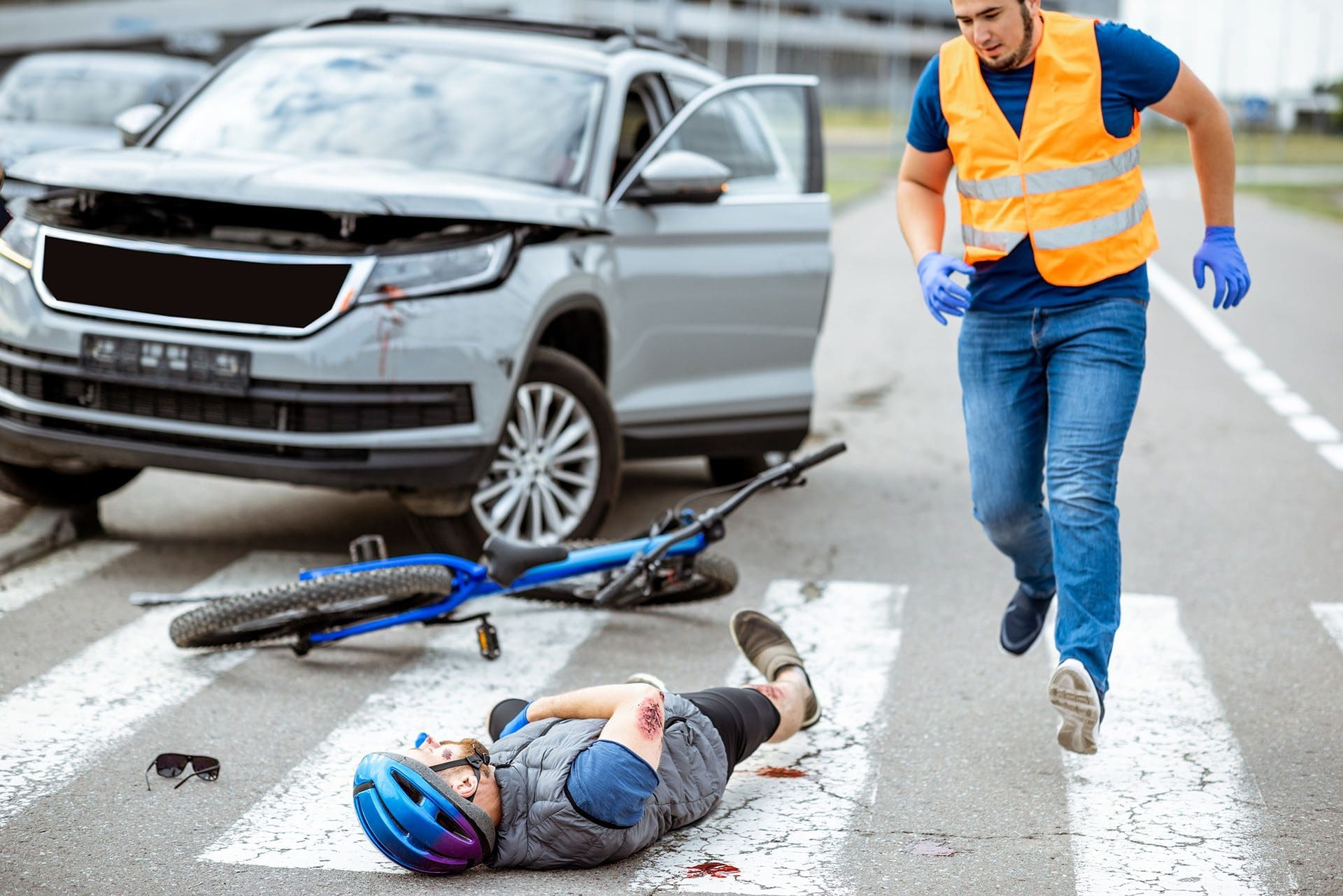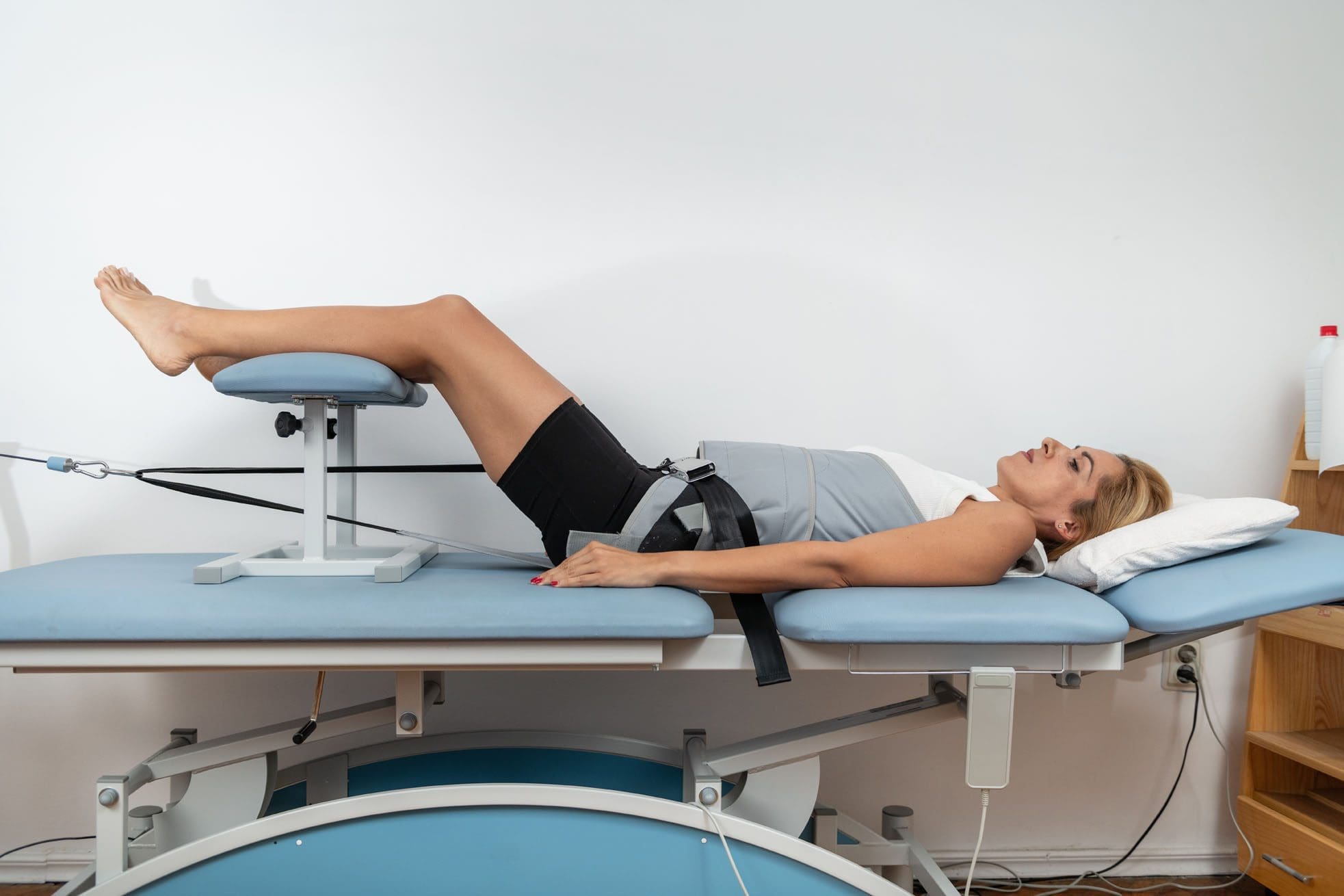Chiropractic Care Approaches for Nerve Damage Correlated With Gluten
Discover how chiropractic care for nerve damage can address underlying health issues from gluten and enhance recovery.
Gluten Sensitivity and Nerve Damage: Integrated Medicine and Chiropractic Solutions for Holistic Healing
If you’re experiencing tingling, numbness, or burning pain in your hands, feet, or legs after eating gluten-rich foods like bread, pasta, or cereal, you might be dealing with nerve damage linked to gluten sensitivity. These symptoms, often tied to peripheral neuropathy, can disrupt daily life and overall wellness. At our clinic, we specialize in holistic, integrative medicine, combining chiropractic care, targeted exercises, therapies like massage and acupuncture, naturopathy, and personalized nutrition counseling to address nerve damage, promote natural healing, and prevent long-term complications. Our approach focuses on treating the whole person, not just symptoms, with clear communication and patient-centered care to empower your recovery.
This comprehensive guide explores the connection between gluten sensitivity and nerve damage, provides clinical insights on why chiropractic and integrative medicine are effective, and offers actionable steps to restore your health. With expertise from Dr. Alexander Jimenez, DC, APRN, FNP-BC, a board-certified family nurse practitioner and chiropractor, and backed by scientific research, this article serves as your comprehensive roadmap to holistic healing. Let’s dive in.
Understanding Gluten Sensitivity: A Whole-Body Concern
Gluten, a protein found in wheat, barley, and rye, is commonly found in foods such as pizza, bagels, and beer. For most, it’s harmless, but for those with non-celiac gluten sensitivity (NCGS), it triggers an immune response that can affect multiple systems, including the nervous system. NCGS impacts up to 6% of the population and is often misdiagnosed due to its diverse symptoms (Cárdenas-Torres et al., 2021). Unlike celiac disease, which damages the small intestine, NCGS can cause neurological symptoms like peripheral neuropathy, leading to tingling, pain, or weakness that affects overall well-being.
Common Signs of Gluten Sensitivity
Watch for:
- Bloating, gas, or irregular digestion.
- Persistent skin rashes or itching.
- Chronic headaches or brain fog are impacting mental clarity.
- Joint pain or muscle stiffness limiting mobility.
- Nerve issues like tingling, numbness, or burning in the extremities.
These symptoms can escalate, contributing to chronic nerve damage if untreated. Research shows gluten sensitivity can inflame the gut-brain axis, irritating nerves and disrupting health (Mitsikostas & Di Luca, 2022).
How Gluten Sensitivity Causes Nerve Damage
Peripheral neuropathy, linked to gluten sensitivity, damages nerves outside the brain and spinal cord, disrupting sensation, movement, or organ function. This can hinder your ability to live comfortably and actively. Here’s how gluten contributes:
- Autoimmune Attack: Gluten can trigger antibodies that attack nerve cells or the myelin sheath, the nerve’s protective coating, similar to mechanisms in multiple sclerosis (Ludvigsson et al., 2013, as cited in El Paso Back Clinic, n.d.).
- Nutrient Malabsorption: Gluten-induced gut inflammation impairs absorption of nerve-critical nutrients like vitamin B12, leading to neuropathy (Fasano, 2011, as cited in El Paso Back Clinic, n.d.).
- Blood-Brain Barrier Disruption: Chronic inflammation may weaken the brain’s protective barrier, allowing toxins to irritate nerves (Hadjivassiliou et al., 2016, as cited in Cárdenas-Torres et al., 2021).
- Sensory Neuron Damage: Gluten-related inflammation can damage sensory nerves, leading to pain or tingling (Mitsikostas & Di Luca, 2022).
Studies show celiac patients are 2.5 times more likely to develop neuropathy, and up to 30% of NCGS patients report neurological symptoms (Ludvigsson et al., 2013; Fasano, 2011). Our integrative approach helps patients manage these symptoms holistically.
Recognizing Neuropathy Symptoms
Early signs include:
- Tingling or numbness in fingers or toes, like they’re “falling asleep.”
- Burning or stinging pain, often worse at night.
- Sensitivity to touch, where even light contact causes discomfort.
- Muscle weakness affecting mobility or daily tasks.
Advanced symptoms may include:
- Coordination issues, increasing fall risk.
- Sharp, electric-shock-like pains.
- Autonomic issues like irregular heart rate or digestion problems.
These can mimic conditions like diabetes, so precise diagnosis is critical (Kamble et al., 2019).
Diagnosing Gluten Sensitivity and Neuropathy
Our integrative medicine approach begins with a comprehensive diagnosis to uncover root causes. We use:
- Blood Tests: To detect inflammation or celiac-related antibodies, such as anti-tissue transglutaminase (tTG-IgA).
- Gluten Challenge: Supervised gluten reintroduction to monitor symptom flare-ups (Cárdenas-Torres et al., 2021).
- Neurological Testing: Electromyography (EMG) and nerve conduction studies to assess nerve function (Kamble et al., 2019).
- Nutritional Analysis: Screening for deficiencies like B12 that contribute to neuropathy.
NCGS is confirmed by ruling out celiac and wheat allergy, then verifying symptom relief on a gluten-free diet. Our detailed assessments ensure personalized, holistic care plans.
The Benefits of a Healthy Diet & Chiropractic Care- Video
Why Chiropractic Care Helps: Clinical Insights
Chiropractic care is a cornerstone of our integrative approach to gluten-related neuropathy. Spinal misalignments (subluxations) can compress nerves, worsening inflammation and pain, which impacts overall health. Our adjustments, guided by Dr. Alexander Jimenez’s 30+ years of experience, relieve nerve pressure and promote healing through evidence-based techniques.
The Science Behind Chiropractic
- Reducing Nerve Compression: Adjustments realign the spine, easing pressure on nerve roots and improving blood flow for repair (Jimenez, n.d.a).
- Lowering Inflammation: Manipulations stimulate anti-inflammatory responses, countering gluten’s effects (Mitsikostas & Di Luca, 2022).
- Enhancing Nerve Function: Alignment improves proprioception, aiding damaged nerves and restoring mobility (Seyedizadeh et al., 2020).
- Supporting Gut-Brain Health: Adjustments influence the vagus nerve, reducing gut-brain inflammation tied to gluten sensitivity (Jimenez, n.d.b).
Research shows spinal manipulation reduces pain and improves mobility in neuropathy patients, enhancing overall wellness (Seyedizadeh et al., 2020). Dr. Jimenez explains, “Chiropractic care removes barriers to your body’s natural healing, supporting holistic recovery” (Jimenez, n.d.a).
Dr. Alexander Jimenez: Leading Integrative Medicine
Dr. Alexander Jimenez, DC, APRN, FNP-BC, a board-certified family nurse practitioner and chiropractor, brings over 30 years of experience in chiropractic, naturopathy, and functional medicine. His integrative approach combines spinal care, nutrition counseling, and advanced diagnostics to address neuropathy holistically. On LinkedIn, he emphasizes patient empowerment: “Holistic care transforms pain into progress” (Jimenez, n.d.c).
Dr. Jimenez’s Approach
- Comprehensive Assessments: Utilizing genetics, lifestyle, and laboratory data for personalized care.
- Precision Adjustments: Targeting nerve roots affected by gluten inflammation.
- Nutritional Counseling: Guiding gluten-free diets to reduce triggers and support wellness.
Dr. Jimenez’s protocols, including “Neuro-Gen” supplements, have helped patients like Maria, a 45-year-old teacher, reduce tingling by 80% in three months through chiropractic, acupuncture, and dietary changes.
Integrative Therapies for Holistic Healing
We combine chiropractic with evidence-based therapies, naturopathy, and nutrition counseling to maximize healing and prevent chronic issues.
Targeted Exercises
Low-impact exercises support nerve health and mobility:
- Balance Training: One-leg stands to improve coordination.
- Nerve Glides: Gentle stretches to free trapped nerves.
- Aerobic Activity: Engage in daily walks to boost tissue oxygenation.
Studies show that combined exercise improves function in patients with neuropathy, supporting holistic recovery (Seyedizadeh et al., 2020). Dr. Jimenez advises, “Consistent movement is key to restoring wellness.”
Massage Therapy
Massage relieves muscle tension that compresses nerves, improving circulation.
- Benefits: Reduces pain, boosts endorphins.
- Frequency: Weekly 45-minute sessions.
Research links massage to better pain control in neuropathic conditions (Hadjivassiliou et al., 2016).
Acupuncture
Precise needle placements reduce inflammation and stimulate nerve repair.
- How It Helps: Enhances regeneration, per neuropathic pain studies (Finnerup et al., 2020).
- Integration: Complements chiropractic for faster recovery.
Naturopathy and Functional Nutrition
Our naturopathic approach uses lab-based insights to create personalized plans, combining nutrition, supplements, and lifestyle changes to address gluten sensitivity and support nerve health, preventing long-term damage (Jimenez, n.d.b).
Building a Gluten-Free Lifestyle
A gluten-free diet is critical for managing neuropathy, as shown in a 2010 Neurology study (El Paso Back Clinic, n.d.).
Foods to Embrace and Avoid
| Category | Embrace | Avoid |
|---|---|---|
| Grains | Quinoa, rice, certified GF oats | Wheat, barley, rye |
| Proteins | Eggs, fish, nuts | Breaded meats |
| Veggies/Fruits | Fresh produce | Processed sauces |
| Snacks | Popcorn, fruit | Cookies, crackers |
Practical Tips
- Check for “gluten-free” certification on labels.
- Prep meals with whole foods to support energy.
- Ask restaurants about cross-contamination risks.
Our nutritionists recommend B vitamins, guided by lab results, to support nerve repair and vitality.
Patient Success Stories
Tom, a 52-year-old office worker, had burning foot pain from gluten neuropathy, limiting his mobility. After six weeks of chiropractic adjustments, acupuncture, and a gluten-free diet, his pain had halved, allowing him to resume daily activities.
Sarah, 38, overcame brain fog and tingling with our integrative plan of chiropractic, massage, and naturopathic nutrition. “The team’s holistic approach gave me my life back,” she says. These stories reflect our commitment to personalized, integrative care.
Preventing Chronic Issues: Your Action Plan
Take control now:
- Schedule an integrative medicine and chiropractic consultation.
- Get tested for gluten sensitivity and neuropathy.
- Follow a tailored plan with adjustments, exercises, and nutrition.
- Track symptoms in a journal to monitor progress.
Early intervention prevents chronic complications, preserving mobility and wellness.
Conclusion: Embrace Holistic Healing
Gluten sensitivity and nerve damage can significantly disrupt your life, but our integrative approach—combining chiropractic care, naturopathy, functional nutrition, and therapies such as massage and acupuncture—offers natural and effective relief. Dr. Jimenez’s expertise ensures a patient-centered path to healing: “We empower your body to thrive holistically” (Jimenez, n.d.a). Contact us at (915) 412-6680 or visit chiromed.com to start your journey to a pain-free, vibrant life.
References
- Aljada, B., Zohni, A., & El-Matary, W. (2021). The Gluten-Free Diet for Celiac Disease and Beyond. Nutrients, 13(11), 3993. https://pubmed.ncbi.nlm.nih.gov/34836247/
- Cárdenas-Torres, F. I., Cabrera-Chávez, F., Figueroa-Salcido, O. G., & Ontiveros, N. (2021). Non-Celiac Gluten Sensitivity: An Update. Medicina (Kaunas, Lithuania), 57(6), 526. https://pubmed.ncbi.nlm.nih.gov/34073654/
- El Paso Back Clinic. (n.d.). Gluten sensitivity could lead to nerve damage & neuropathy. https://elpasobackclinic.com/gluten-sensitivity-could-lead-to-nerve-damage-neuropathy/
- Finnerup, N. B., Attal, N., Haroutounian, S., McNicol, E., Baron, R., Dworkin, R. H., Gilron, I., Haanpää, M., Hansson, P., Jensen, T. S., Kamerman, P. R., Lund, K., Moore, A., Raja, S. N., Rice, A. S., Rowbotham, M., Sena, E., Siddall, P., Smith, B. H., & Wallace, M. (2015). Pharmacotherapy for neuropathic pain in adults: a systematic review and meta-analysis. The Lancet. Neurology, 14(2), 162–173. https://pubmed.ncbi.nlm.nih.gov/25575710/
- Hadjivassiliou, M., Rao, D. G., Grìnewald, R. A., Aeschlimann, D. P., Sarrigiannis, P. G., Hoggard, N., Aeschlimann, P., Mooney, P. D., & Sanders, D. S. (2016). Neurological Dysfunction in Coeliac Disease and Non-Coeliac Gluten Sensitivity. The American journal of gastroenterology, 111(4), 561–567. https://pubmed.ncbi.nlm.nih.gov/26832652/
- Jimenez, A. (n.d.a). Home. Injury Specialists. Retrieved September 15, 2025, from https://dralexjimenez.com/
- Jimenez, A. (n.d.b). Neuropathy. Injury Specialists. Retrieved September 15, 2025, from https://dralexjimenez.com/neuropathy/
- Jimenez, A. (n.d.c). Dr. Alexander Jimenez, DC, APRN, FNP-BC, IFMCP, CFMP, ATN ♛. LinkedIn. Retrieved September 15, 2025, from https://www.linkedin.com/in/dralexjimenez/
- Kamble, N., Shukla, D., & Bhat, D. (2019). Peripheral Nerve Injuries: Electrophysiology for the Neurosurgeon. Neurology India, 67(6), 1419–1422. https://pubmed.ncbi.nlm.nih.gov/31857526/
- Mitsikostas, D. D., Moka, E., Orrillo, E., Aurilio, C., Vadalouca, A., Paladini, A., & Varrassi, G. (2022). Neuropathic Pain in Neurologic Disorders: A Narrative Review. Cureus, 14(2), e22419. https://pubmed.ncbi.nlm.nih.gov/35345699/
- Rosenberger, D. C., Blechschmidt, V., Timmerman, H., Wolff, A., & Treede, R. D. (2020). Challenges of neuropathic pain: focus on diabetic neuropathy. Journal of neural transmission (Vienna, Austria: 1996), 127(4), 589–624. https://pubmed.ncbi.nlm.nih.gov/32036431/
- Seyedizadeh, S. H., Cheragh-Birjandi, S., & Hamedi Nia, M. R. (2020). The Effects of Combined Exercise Training (Resistance-Aerobic) on Serum Kinesin and Physical Function in Type 2 Diabetes Patients with Diabetic Peripheral Neuropathy (Randomized Controlled Trials). Journal of diabetes research, 2020, 6978128. https://pubmed.ncbi.nlm.nih.gov/32215272/








